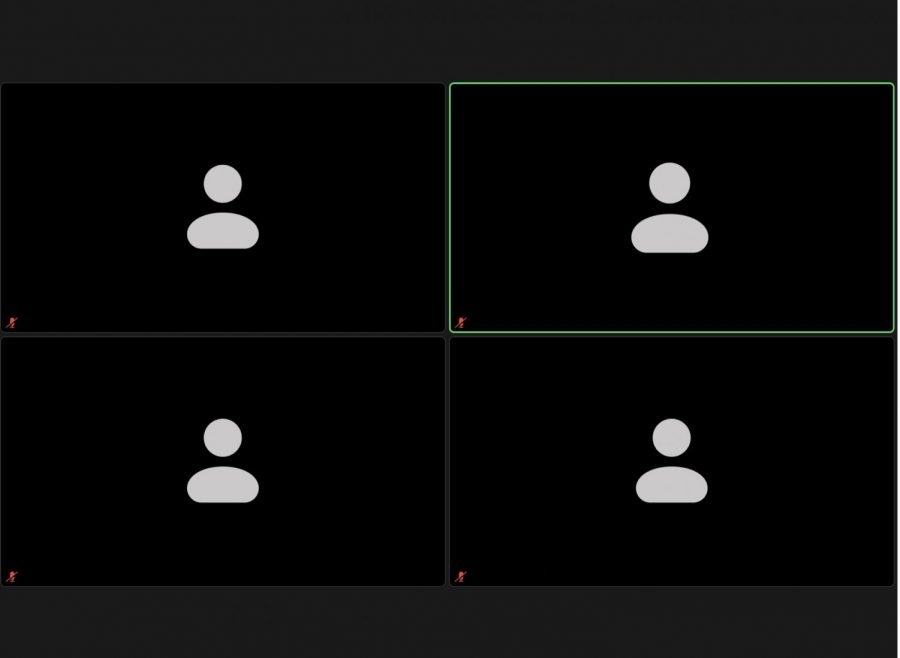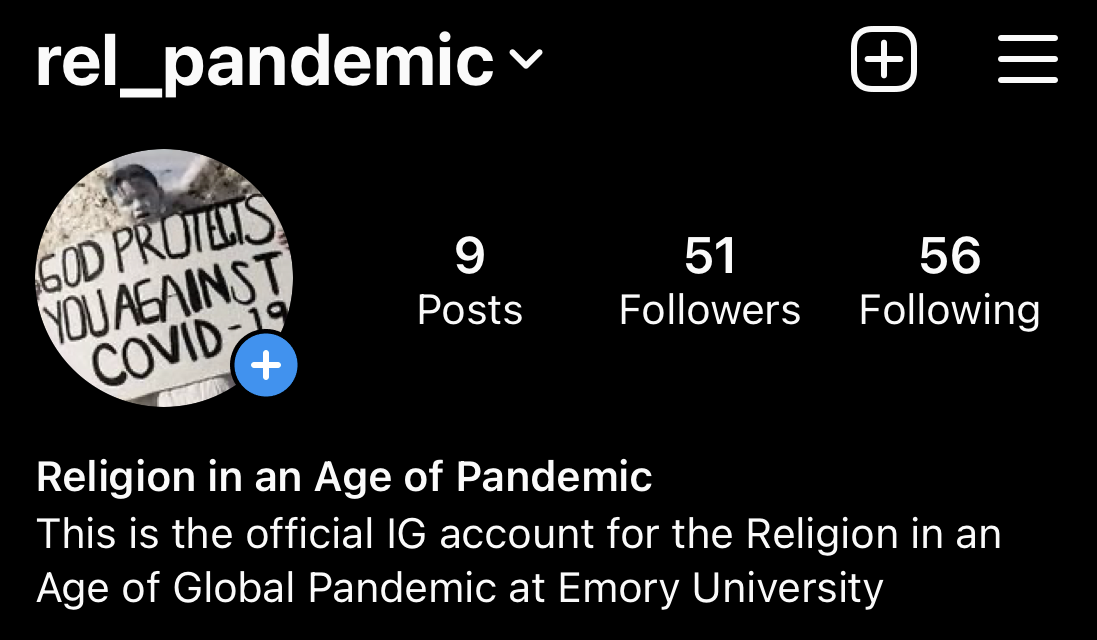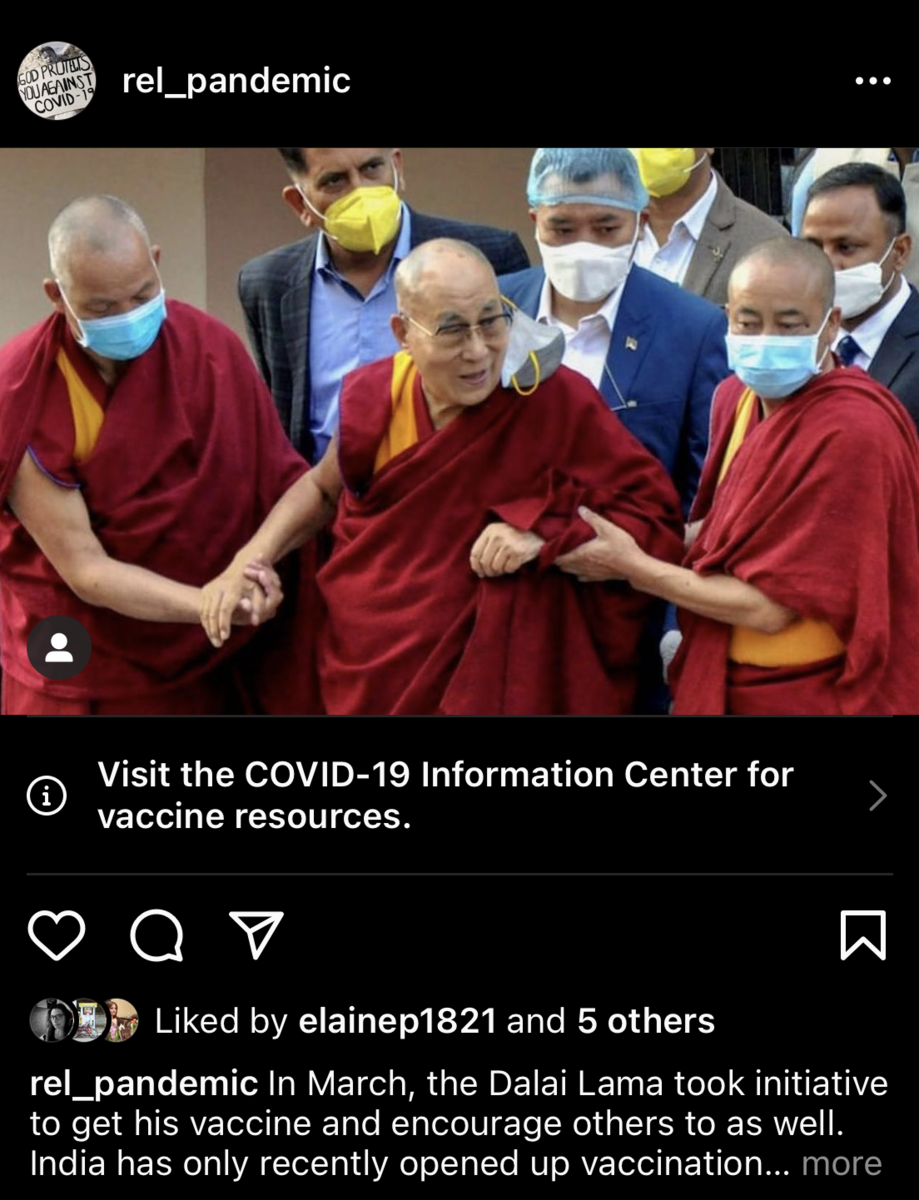It was barely a third of the way through the spring semester, and I could already see students begin to burn out in class. The Brady-bunch zoom screen, once full of faces, gradually began to fade to black. Students’ initial interest in unraveling the relationship between the Covid-19 pandemic and religious practices was rapidly being overtaken by the compounding fatigue of almost a year of online classes.

The professor and I would confer after each class: How could we continue to engage students’ interest? What would make them tune in, process the reading material, all while still lightening their weekly assignment load?
The solution, when we landed on it, seemed so simple: create a class instagram.

I had been wanting to practice my digital humanities skills for awhile through the medium of Instagram but had always been overwhelmed with where to start. I was thrilled to finally try my hand out at one by working with the students to research, write, and circulate posts related to the questions we were tackling in class. This assignment also enabled us to pivot more fully to a digital humanities final project, providing students with some of the necessary skills they need to translate their academic writing into more accessible, public scholarship projects.
Figuring out the logistics took a bit of creativity–did we want students to all have access to the page? Or would it make more sense for one person to have the password and upload content? We decided that, for both simplicity reasons and because the account would be affiliated with the university, I would create and manage the account. Students would send me fully-finished posts, complete with a photo, in the form of a word document. I would then edit for clarity and post.

Students expressed incredible creativity in their posts–bringing in class points and questions from the readings and then connecting them to the questions motivating their own interest in the pandemic and religion. While it did not quite cure zoom fatigue, it was one of the key highlights of the semester. More importantly, it has firmly convinced me of the importance of incorporating different forms of assignments beyond the traditional reflection or response paper. “Gramming” about religion enabled students to engage more deeply in their research and to learn how to translate their knowledge into publically accessible scholarship.
To participate or keep following the conversation, follow the page: @rel_pandemic. I will continue to post final submissions from students as the weeks come.
